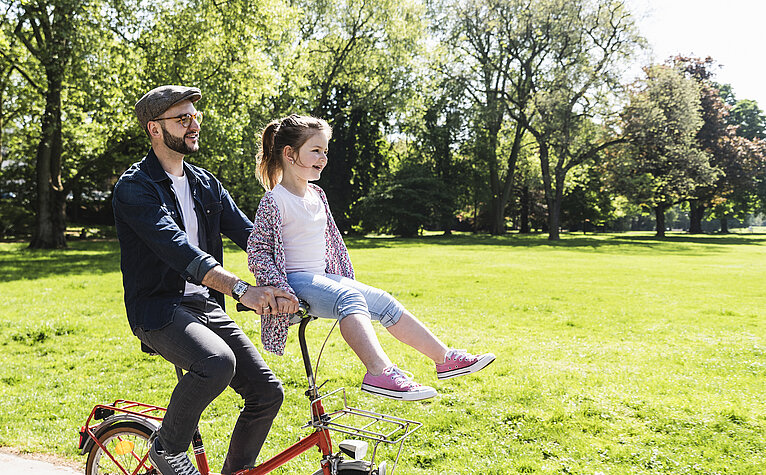
- Moving to Austria
- Living in Austria
Primary School in Austria: What You Need To Know
21. November 2022Read on to discover what you and your children should expect while signing up for primary school in Austria.
If you’re moving to Austriamoving to Austria () as a parent of young kids, you probably have lots of questions about primary school. In this article, you’ll learn all about Austria’s great primary education options, as well as the country’s numerous private and public school institutions.
What is the goal of public primary school in Austria?
The goal of primary education in Austria is to teach children the basics in general subjects such as reading, writing, and math. The primary school system also strives to help children learn everyday skills such as responsibility, tolerance, respect, and participation in group settings.
What can you expect in public primary school?
If you plan to send your child to a public primary school in Austria, you may be wondering about the education they’ll receive there. Below, you can find everything you need to know about Austrian public primary schools, ranging from curriculum to school hours and more.
Curriculum in Austria primary school
At primary school in Austria, children receive a general education that covers elementary concepts in math, reading, and literacy. Many schools also offer classes for physical education, music, art, and religion.
Once students start their third year in school, they also will be required to learn a foreign language. After their fourth year in school, children must successfully complete their classes in German, math, and reading. Successful completion is a requirement before a student can start middle school.
Holidays in public schools
In Austria, there are a few main holidays on which schools are closed. These include:
- Easter: 10 days off
- Whitsun: four days off
- Christmas: 14 days off
- Summer: nine weeks off
Primary public school hours
Children of primary school age typically start their classes on the first Monday in September and attend school for two semesters, with one week of February break. The school day starts around 8 a.m. and runs approximately until 2 p.m, with each class running 45 to 50 minutes.
Class sizes
Typically, public primary school classes comprise at most 25 students. Most classes usually include less than 20 children. Special education classes typically include fewer children and more teaching assistants.
Admission, enrolling, and registration
You can register your children for school in the fall or winter before the school year in question. Once you decide which school you want your child to attend, you must visit the school to register in person. While there, you’ll speak with a school director who decides if your child is ready to attend primary school. The director will speak with you and your child’s kindergarten teachers to make their decision.
For your child to be accepted into primary school, they must be able to adequately communicate in Germanadequately communicate in German (). They must also be in good physical, mental, social, and cognitive health. The school’s admissions team may request additional medical and psychological certifications before acceptance.
What are the types of private primary schools?
If you don’t want to enroll your children in the public primary education system, Austria offers four private alternatives. Read on to discover the differences between these private school categories and determine which category might be best for you.
Religious primary school
As with many European countries, religion has played a substantial role in Austrian history. As such, the country is home to some private schools affiliated with the Roman Catholic Church. These schools provide deeper religious education than in public primary schools and other types of private schools.
The advantages of choosing a private religious primary school could include:
- Developing a strong sense of faith in your child
- Providing an inspiring, spiritual school experience
- Fostering a sense of community between your child and their religious peers
Montessori primary school
A Montessori school believes in providing students with emotional, cognitive, and social support. Such schools believe that children learn best through creativity and a sense of independence, rather than lecture and rote lessons.
Advantages include:
- Giving your child space to develop creative skills
- Fostering more independence in your child from a younger age
- Supporting your child more deeply in their social-emotional skills
Waldorf primary school
A Waldorf primary school operates on philosophies somewhat like those of a Montessori primary school. The difference is that Waldorf schools focus more on intellectual stimulation and imagination. Much of a Waldorf school’s philosophy is built upon thinking, feeling, and doing. Teachers at a Waldorf school focus their efforts on a curriculum that combines academics, art, and practical skills.
Advantages include:
- Providing an age-appropriate, hands-on learning experience for your child
- Teaching students how to take an active role in their education from a young age
- Helping young children grow a passion for learning from their earliest years
International primary school
Austrian families not native to the country may want to educate their children at a private international primary school. These schools provide high-quality education in non-German languages and with British, American, and/or French curricula. They can help children born elsewhere feel more at home as they adjust to life in a new foreign country.
Advantages include:
- Education in a multicultural environment
- Lessons in a language your child already knows
- Curricula that reflect your home country
Learn more about Austria
Whether you’re bringing your family to Austria as you start a new career or just for a fresh start, there’s plenty to learn about your new home! Explore our resourcesExplore our resources () to learn more about life in Austria and your future here.
More blog posts





